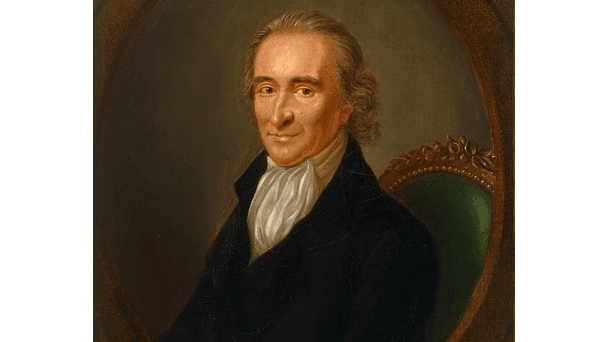“I offer nothing more than simple facts, plain arguments, and common sense,” wrote Thomas Paine, author of the famous January 1776-published “Common Sense.” Though 247 years old, this booklet includes a plethora of noteworthy statements still resonating with Americans today.
Paine was not a scholar, did poorly in school in his native England, and even failed as a sailor and an excise tax officer. But his chance meeting with Benjamin Franklin in London in 1774 and his subsequent emigration to America routed him into a surprisingly suitable vocation: journalism.





